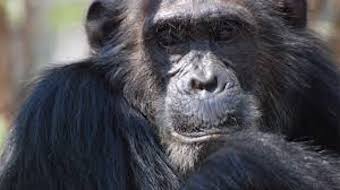All of our fellow creatures deserve to be treated with respect, both those who look like us, and those who don’t
Photo Credit: Popular Science
How do you decide which issue you should fight for?
First off, you’ll probably know what it is when it feels like it’s chosen you, and not the other way around. If you’re like so many others who’ve come before you, at some point you’ll feel like you must do something about whatever it is that’s ignited a passion inside you. You may not have seen it coming,, but you’ll know when it’s arrived.
Later, you may well find yourself asking the obvious follow-up question, as I have been recently. It looks something like this, and let me explain by way of my own example.
Some years ago, after a single viewing of The Cove, I knew what I had to do. The sheer volume of the injustice was intolerable. That we humans could behave this way towards fellow sapient beings could not stand without my voice being raised against it. Since then, it’s the marine park industry, and the very concept of dolphin captivity that provides the economic incentive for the drive-hunts, that has drawn so much of my ire. I think it will take another 20 to 30 years for me, and thousands of others like me, to bring this particular brand of ‘entertainment’, and utter lack of compassion by an exploitive industry, to a permanent end.
But here’s the problem. With the passing of years, I’ve come to realize that the single most important issue facing our kind is the battle against climate change, and the existential threat to our civilization that it represents. You may disagree. Perhaps you feel it’s intelligent AI, or the rise of nationalism, or the threat of nuclear war. Or perhaps you feel it’s none of those things, and the most important issue is something else altogether. For the sake of this argument, it doesn’t matter. The point is that, given what I believe to be true, why am I not fully engaged in the battle against climate change? How important is the fate of a few thousand dolphins relative to that?
The answer is, very. Here’s why I’ve come to that conclusion.
The reason I think we’ll ultimately succeed in the face of our biggest challenges is our growing respect, and love, for our natural world. That manifests itself in how we treat others – dolphins, chimps, anteaters, forests, oceans, indeed the entire biosphere itself. The process of saving ourselves, and bringing about the benevolent and prosperous future we want, is gong to happen only if we love and respect all of it.
We don’t have dominion over the world. It isn’t there strictly for our benefit, to be taken from like an account that can never be overdrawn. With fellow creatures that exist only as commodities in our economic sphere. Our needs and concerns being the only ones that matter.
Rather, we are a part of the web of life. Able to impact the rest of the fabric on a disproportionate scale, most surely. But just a part, not its masters. Now that we’re learning to live in harmony and balance with all the rest, to work to build circular, waste-free economies, we have a shot. Now that we see that others live here too, and it isn’t just all about us, we can be successful.
As for the whales and dolphins who are our particular focus at CCA, we have no doubt about the importance, and the necessity of our mission. They deserve the justice we intend to give them, and we’ll do it because it’s what’s best for us, as well as for them.
For The Orca’s Voice,
Phil and the Canadian Cetacean Alliance Team



Leave a Reply